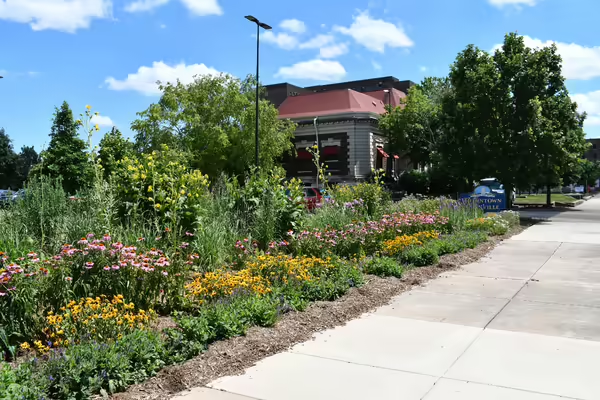
DANVILLE, Ill. — As someone strolls along the sidewalk in front of the Danville Public Library, they are greeted by the enchanting sight of bees, wasps, a variety of butterflies, and even some mydas flies flitting between the vibrant, colorful flowers of a thriving pollinator garden. This lively scene, teeming with the activity of nature's busy workers, is all thanks to the hard work and dedication of the Vermilion County Master Gardeners, East Central Illinois Master Naturalists, and the Danville Public Library.
The garden is the result of extensive planning and hard work. In 2021, the plots where the pollinator garden now sits were landscaped, but they were only home to old rose bushes, grass, and other weeds. As a result, the library reached out to the Vermilion County Master Gardeners to create a more sustainable design.
"Some people at the library had a vision to make a native plant garden, but not everyone at the library was on board," Master Gardener and Master Naturalist Kristin Camp explained. "So, we invited the director of the library, the groundskeeper, and the library board president to come out to the native garden at my house, and within five minutes, they were sold!
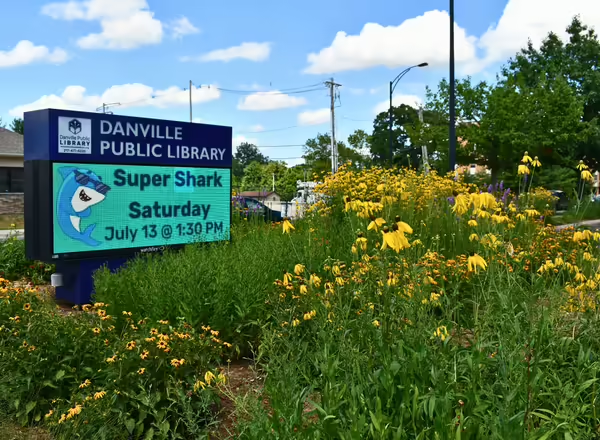
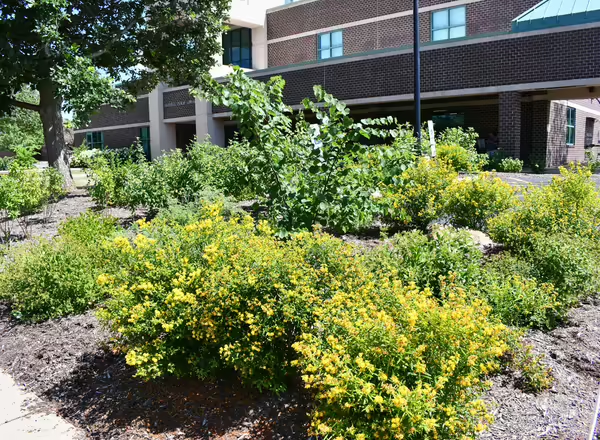
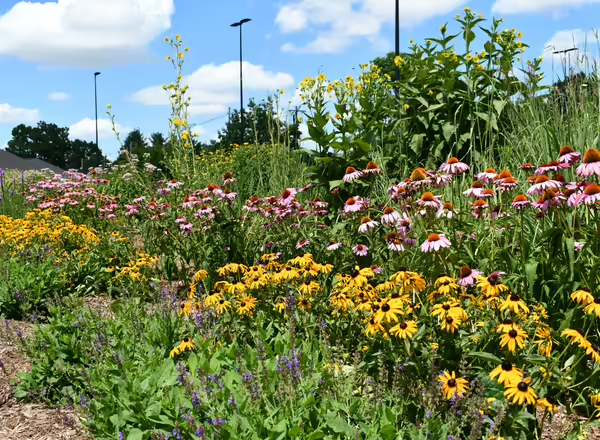
After this tour of what a native plant garden could be, Extension volunteers were set to begin. The initial stage of planting, which took place in Spring 2022, focused on the area along Vermilion Street and Seminary Street. Designed by Master Gardeners Kristin Camp, Donna McCoy, and Donna Bartimac in collaboration with library personnel, this section features a variety of native plants. Prairie dropseed, salvia, rudbeckia, purple coneflower, orange butterfly weed, bee balm, and other native plants were carefully chosen for their ecological benefits and aesthetic appeal.
The second stage of planting occurred in October 2022 and included the addition of 80 shrubs and two trees. The selection, which featured redbud trees and various shrubs such as shrubby St. John’s wort, New Jersey tea, leadplant, red twig dogwood, buttonbush, and spicebush, was made with an eye toward fall color and focused on native species.
In 2023, the final stage of planting along Vermilion St. involved a strategic layering of plants, with shorter plants placed in the front and progressively taller plants behind them. This design ensures that the garden remains visually appealing throughout the seasons, as the plants in the back provide fall color after the foreground plants have finished blooming. This summer, the community garden has bloomed into a hotspot for a diversity of pollinators and a spectacular flower display.
The garden's creation has not only beautified the library grounds but also serves as an educational and ecological asset for the community. The Danville Public Library now boasts a thriving Pollinator Garden that stands as a testament to the dedication and vision of the Vermilion County Master Gardeners and the East Central Illinois Master Naturalists.
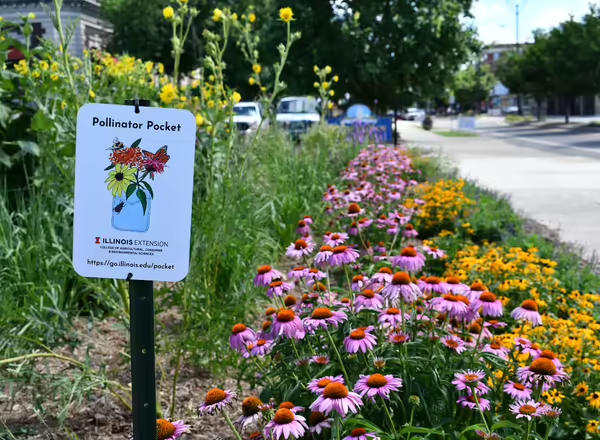
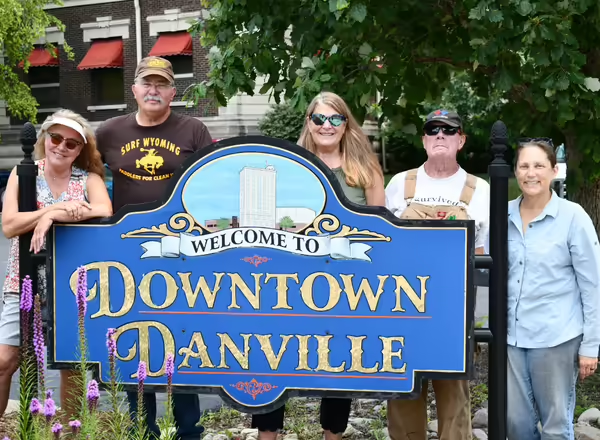
“In recent years, research has uncovered alarming drops in pollinator populations around the globe,” notes Extension Horticulture Educator Ryan Pankau. “This pollinator decline has led to lots of interest in planting pollinator-supportive gardens filled with native plants.”
In response to the growing need for pollinator support, Illinois Extension continues to develop programs to help solve the issue of pollinator decline. If you are interested in learning more about how you can plant a pollinator garden, check out our new Illinois Pollinators website at Pollinators.Illinois.edu.
“There are lots of ways we can support pollinators, either by modifying our current garden practices or by planting an entirely new garden focused on the plants they need,” says Pankau. “The Illinois Pollinators website contains all the information you need to take the first steps in support of our native pollinators.”
Whether you already have a pollinator garden or you’re designing a new one, take a moment to register your garden as a Pollinator Pocket with Illinois Extension. Participation in the program is free, and if you are willing to pay a small fee, Illinois Extension will mail you a sign to post in your new Pollinator Pocket. For more information, please visit go.illinois.edu/Pocket.
Learn more about the Vermilion County Master Gardeners at go.illinois.edu/VCMG and learn more about the East Central Illinois Master Naturalists at go.illinois.edu/ECIMN.
Illinois Extension leads public outreach for University of Illinois by translating research into action plans that allow Illinois families, businesses, and community leaders to solve problems, make informed decisions, and adapt to changes and opportunities. Illinois Extension is part of the University of Illinois Urbana-Champaign College of Agricultural, Consumer and Environmental Sciences.